Eight ways to prepare your garden if you’re going on holiday

If your holiday goes to plan, you’ll return home in a relaxed and mindful state – only to be brought back down to earth with a bump, perhaps, by the state of your garden: full of dried-out and crispy plants, and a lawn that resembles a hay field. To prolong that warm, fuzzy, post-holiday feeling for as long as possible, there are a few tips and tricks you can use to prepare your garden for your absence, ready for you to pick up where you left off, horticulturally, when you’ve unpacked.
Everybody needs good neighbours
One of the most successful ways to prevent your garden going into a state of shock when you go away is for a friend or neighbour to continue your watering routine in your absence. We are all quite particular in the way we tend our garden, and when that well-meaning friend or neighbour comes to visit for instruction, it’s very easy to overwhelm them with copious amounts of detail or pages of notes. Remember: the simpler we can make their task, the more fruitful the results will be, and their job is to keep your plants healthy, not to transform your plot in line with the Main Avenue at the Chelsea Flower Show.
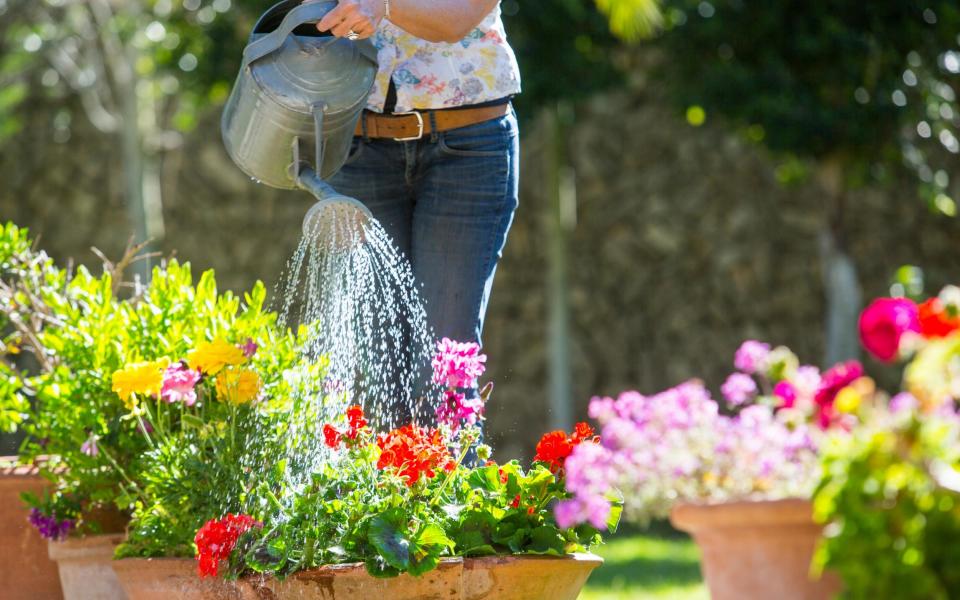
Grouping pots together will help to make watering more efficient for them, and make sure there are plenty of watering cans to hand, or hosepipes that are long enough to reach all of your containers. Be sure to encourage your willing helper to harvest tomatoes, cucumbers or any other prolific cropping plants to prevent them going to seed or slowing down their productivity. This little garden bounty is a lovely incentive for your friend or neighbour to spend time in your garden; but most important, don’t forget to bring a special something back from your trip to show them your appreciation.
Give the garden a good once-over
Just before you head off, give the grass a cut, trim the lawn edges and pull up the worst of the weeds before they go to seed. Top up any ponds and thoroughly deadhead any flowering plants to encourage lots of fresh budding. Harvest any vegetables or fruit that are ripe, and freeze them to prevent wastage.
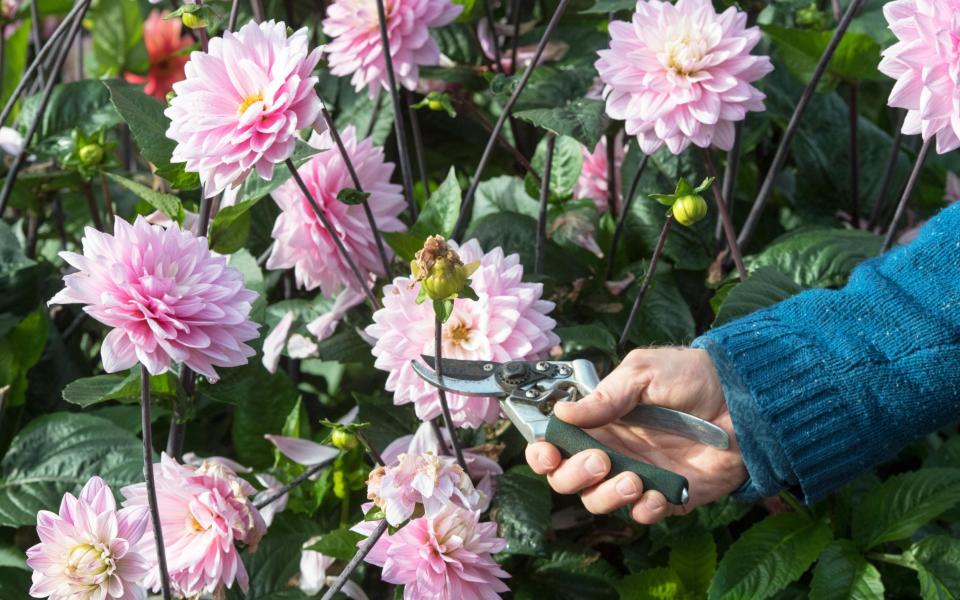
Prepare your pots
Containers of plants, grow bags, or the worst offenders – hanging baskets – are often the most vulnerable and are likely to be affected when we go away, as smaller volumes of compost will dry out quickly, and in spells of very warm weather they need to be watered daily.
For the time that you are away, move as many containers into the shade as possible. Good light levels will promote flowering and healthy growth, but those conditions tend to accelerate drying out. Placing your containers in the shade for a week or two will not be detrimental to the plants’ performance, but will certainly reduce the amount of water that your plants need and lessen the likelihood of them drying out during very warm spells.
Irrigation techniques cover a vast spectrum, from a drip watering system using an upside-down plastic bottle, right the way through to soaker hoses on a timer or a remotely monitored watering system that you can control using an app (which might be worth considering if you’re away for a particularly long time). I would still advise that a friend or neighbour pops round to check that the system is working every so often.
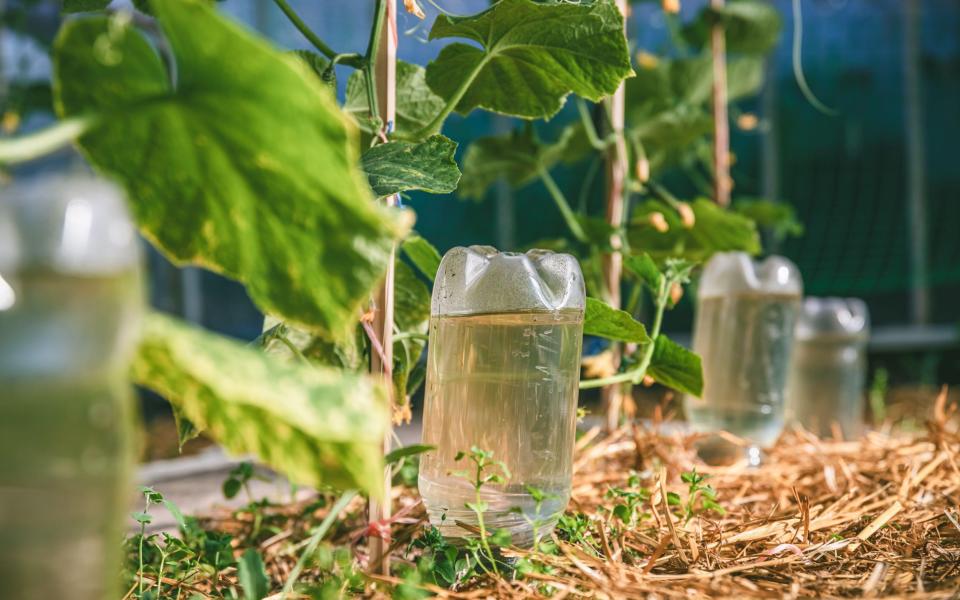
Water your pots thoroughly before you go away, and if you notice that your containers are particularly thirsty, then consider placing a tray or saucer underneath the pots to create a reservoir from which the plants can absorb moisture. Top-dressing your containers with bark or gravel that is several centimetres deep will also slow down evaporation. For large containers that cannot be moved into the shade, try draping an old net curtain or horticultural fleece over the plant, which will filter the light and help to reduce evaporation.
Leave the lawn a little longer
Turf is incredibly resilient and can bounce back from periods of drought. Scalping your lawn low, in an attempt to keep it short for longer, results in the turf drying out more quickly through evaporation. When giving that final trim before you go away, lift the mower blades slightly higher to reduce water loss, then be ready to cut more regularly and a little lower when you return.
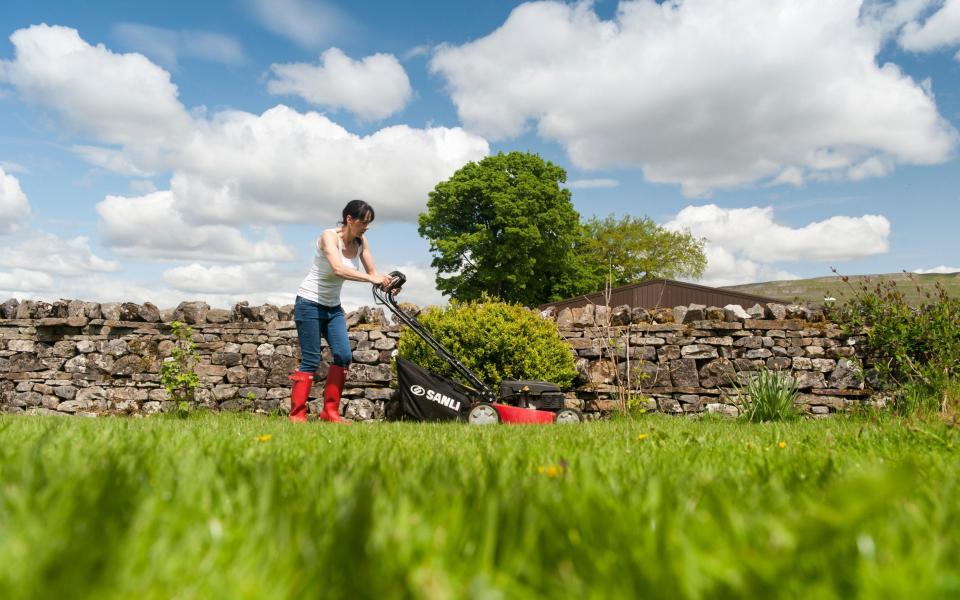
If you have a robotic mower, it can simply be left to do its job while you’re away.
Keep wildlife in mind
If you provide water for your local wildlife, then ensure that it is well topped up before you go away. Remove any hazards that might injure or trap creatures in your absence. Make sure that fruit cages are tightly secured to the ground and that sports nets such as those in football goals are safely packed away to avoid animals getting stuck in them for a long period of time. Extra-large bird feeders will help to provide food for a couple of weeks, and a few extra dishes of water at ground level in the shade will help to provide nourishment during dry spells.
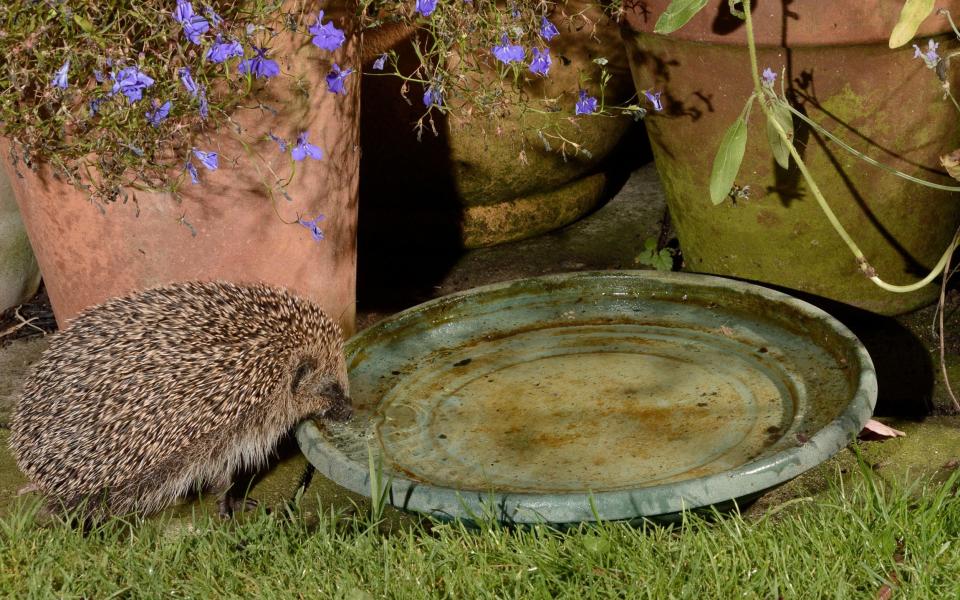
Organise the greenhouse
Greenhouses are among the most difficult parts of your garden to manage when you’re away, as most plants that we grow under glass are very thirsty, requiring regular attention. In high summer, plants grown in containers or grow bags should be moved, if practical, into a shady part of the garden to avoid them drying out. Automatic watering systems can be very effective in a greenhouse environment, in the absence of a friend or neighbour.
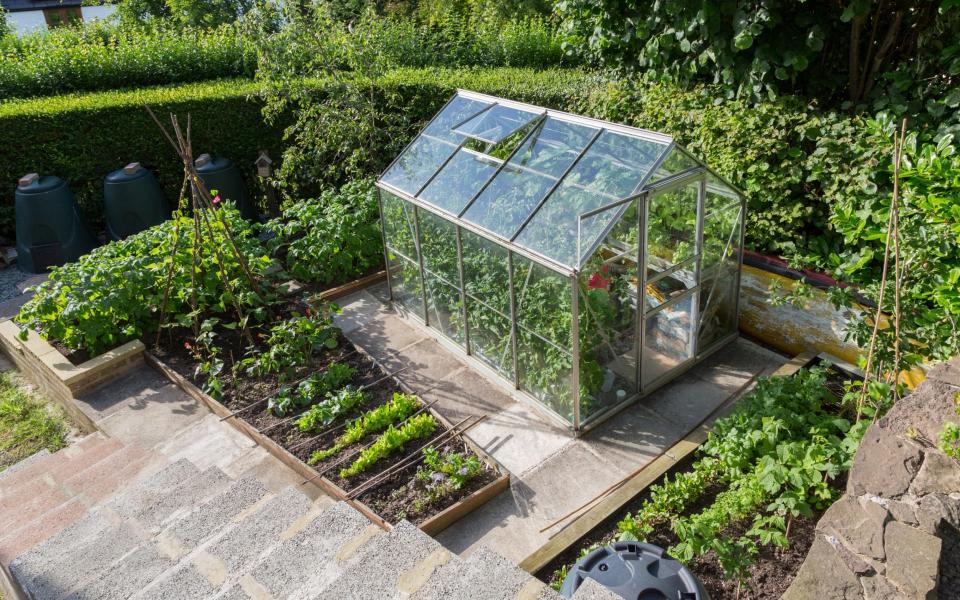
Relocate houseplants
Houseplants are probably the most forgiving group of plants when it comes to being left alone for a week or so. A thorough watering before you go away, and leaving your plants on a wet towel in the bath, will sustain them for several days through capillary action, and they can be revived easily on your return if they are slightly underwatered. The bathroom is often the darkest room in the house, so plants tend to lose water less quickly in this room compared with a sunny kitchen or porch.
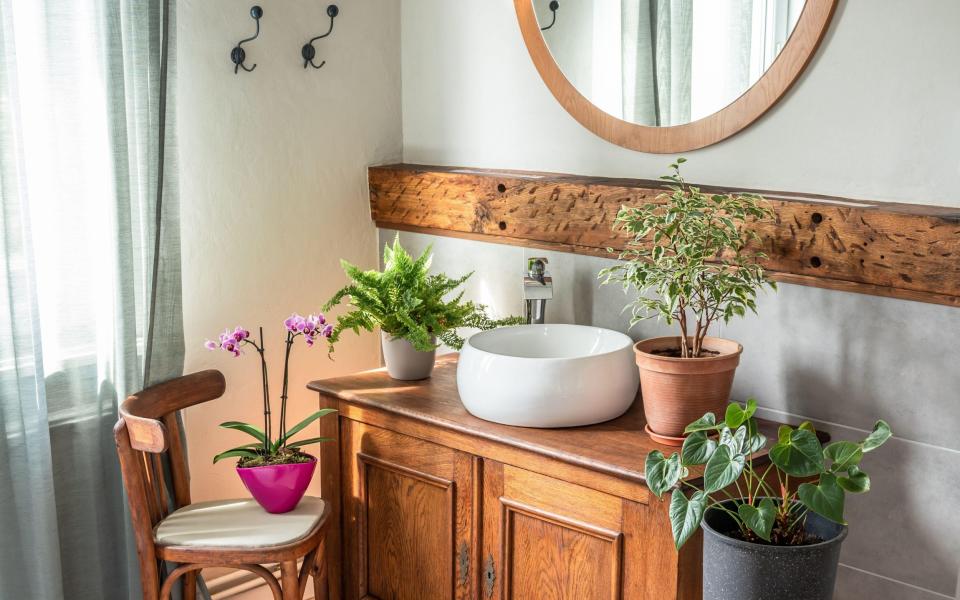
Don’t forget security
Make sure that any valuable equipment such as mowers, hedge trimmers, ladders, furniture and ornaments are safely locked away in a shed with a robust padlock. Wheelie bins should be moved away from fences or walls to prevent people using them to climb in and out of the garden. Keep windows free from any benches or bins to avoid unwelcome visitors using them to peer into your property, where they can be used as a leg up.


